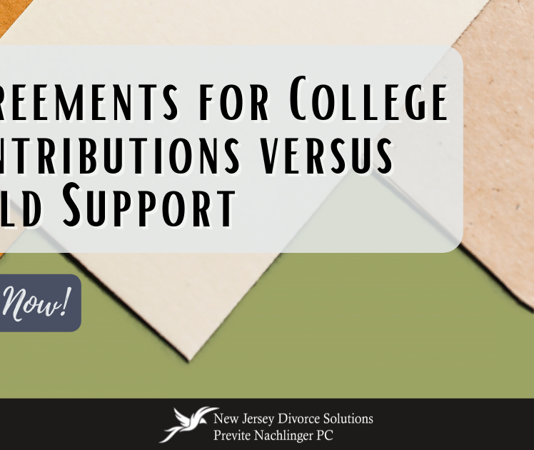Agreements for College Contributions versus Child Support

Divorce or separation requires that the parties make new plans for the future. These plans will include new housing arrangements, new budgets, and new retirement planning. When the parties share children, this will also include new plans for the parties’ children. Many parents work hard to make sure they put money away for their children’s college education. In addition, after the divorce or separation, the court will make an order for child support. It is important for parents working toward a settlement to understand the interaction between college contributions that are agreed upon by the parties and court ordered child support.
New Jersey is one of a handful of states that has codified its recognition that education, including a college education, is essential for a child’s future success. To that end, if a child attends college full time following high school, it is possible for a parent to be ordered to contribute to the child’s college education. The court will look to particular factors to decide if such an order is appropriate, such as the amount of contribution sought and a parent’s ability to pay that amount. It is up to the court whether that will be required and how much will be required. However, if the parties have an agreement for contribution, it is a different situation. If the parties have entered into a mediated settlement agreement for a parent to pay for all or part of a child’s college education, a court is very likely to enforce such an agreement. This enforcement will be likely regardless of how the typical factors would have been weighed by the court.
This is slightly different than an agreement for child support. Child support, unlike college contributions, is set by very particular guidelines. A formula is used to determine how much child support will be paid. There are some cases where parents may want to come to an agreement to waive child support. Courts are typically reluctant to enforce these agreements. This is because the support is designed to benefit the child, not the parent, and so the parent should not be permitted to use that support as a bargaining chip. Courts also do not want to support the notion that a parent may be able to “buy” more residential time with the child by agreeing to forego child support from the non-custodial parent.
We have experience helping our clients come to an agreement that is both equitable and enforceable. Call us today at (732) 529-6937 for an appointment so we can talk about your children and your future. Please also check out our for other FAQs about divorce topics like this one.
